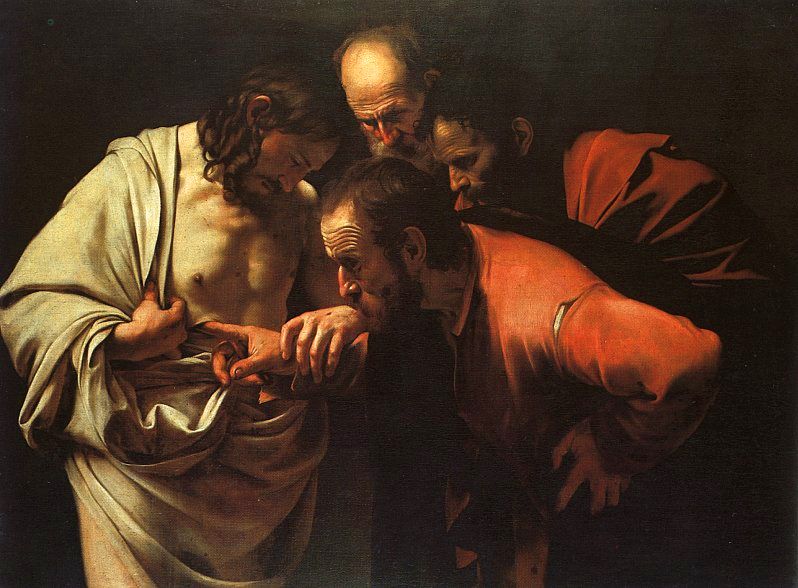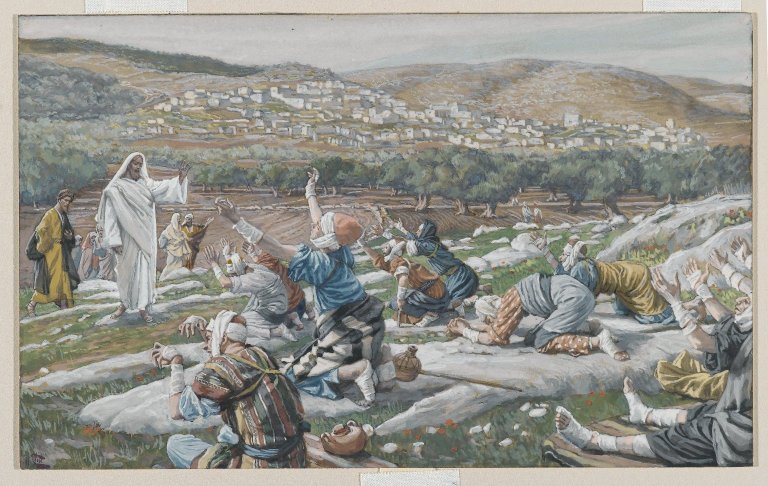And Jesus went away from there and withdrew to the district of Tyre and Sidon. And behold, a Canaanite woman from that region came out and cried, “Have mercy on me, O Lord, Son of David; my daughter is severely possessed by a demon.” But He did not answer her a word. And His disciples came and begged Him, saying, “Send her away, for she is crying after us.” He answered, “I was sent only to the lost sheep of the house of Israel.” But she came and knelt before Him, saying, “Lord, help me.” And He answered, It is not fair to take the children’s bread and throw it to the dogs.” She answered, “Yes, Lord, yet even the dogs eat the crumbs that fall from their masters’ table.” Then Jesus answered her, “O woman, great is your faith! Be it done for you as you desire.” And her daughter was healed instantly. Matthew 15: 21-28
As most of you know, every summer I go to summer camp. It is one of the highlights of my year and something I look forward to each year, just like the teenage campers and adult counselors and staff. Obviously, there is no camp this year for us. In light of this, we’ve created a one-week virtual program called “summer reset 2020” which is being held this week. Since camp helps our young people “reset” themselves each year, getting back to the basic of Christianity, the goal this week is to facilitate a virtual “reset.” I thought I would include the Prayer Team in this “reset” mindset by writing this week on the topics we are sharing with our “Summer Reset 2020” participants. There will be five “reset” topics this week and we will return to the Psalms next week. After each reflection, there will be a few questions for you to think on, either alone or with family/friends.
As we continue toward the end of this “summer reset” week, the theme of today is hope for the future. One of the greatest examples of hope in the New Testament is Jesus’ encounter with the Canaanite woman who pleaded for her daughter to be healed. Her answer from Jesus didn’t come on her first request or her second, but her persistence paid off. She wasn’t going to give up hope when her first request wasn’t answered or her second. She was determined that her daughter be healed, and she was hopeful that Jesus could provide the means for her healing.
The Canaanite woman serves as a model not only for persistence and hope but unwavering faith. We show up many times in prayer, well intentioned, hoping for our prayers to be answered, and then they aren’t. Either they aren’t answered immediately, or they aren’t answered in meeting the request we’ve made. Perhaps God has other plans. Perhaps He plans to answer the prayer at a different time or in a different way than what we are thinking. This is why, at all times, we should pray “for God’s will” to be done, that is “unto our salvation.”
I am hopeful that there is a path to salvation for me. I know that the path for each person is different and unique. I hope that despite my sinfulness, I am still on that path. Along the path, there will be unanswered prayers and unforeseen disappointments. This is where hope and trust and faith come in. To be able to believe even when life, or God, has disappointed us with unanswered prayer. Even when it feels like we are asking over and over and not receiving. Even when it feels like patience is long ago exhausted.
Christians are people of hope and not despair. Because God is a God of hope and despair. Regarding our petitions during this pandemic, we have to know and to trust and to hope that eventually we will emerge from our quarantine. We will go back to school, if not this coming month, then somewhere in the months to come. We will again hug other people. We will again have summer camp. We will again have the possibility of full churches—whether we choose to fill them is another story.
We’ve discussed things we have lost, things we are still grateful we have, as well as challenges and difficulties along the way. Today, our discussion will be about goals and dreams. It is still okay to dream. It is very appropriate to set goals. Anytime we set goals, we know that some of them won’t be achieved. We should still set goals even during this pandemic. Those goals might be personal, like losing weight or putting more effort into a relationship. Those goals might be professional, like still putting out work from home. Those goals should be spiritual. The pandemic, if anything, should increase our prayer life. We should set goals in worship as well—whether in person or on line. We should set some financial goals, and these should include a measure of generosity to those who are in greater need than we.
History, like the stock market, like our favorite sports team, and so many other examples, is not something that is on an ever upward trajectory. There are ebbs and flows to it. There are bad seasons and losing streaks, just like there are good seasons and winning streaks. We are in one of those challenging seasons of life, which will not last forever. Winning, or in the spiritual sense, salvation, is always the goal. Effort is the one thing we can always control. The results are based on a lot of factors, many of them not our own. So, focus on your effort, and take hope in the fact that effort, not necessarily success, is the thing that pleases God.
God is present in all places and at all times. His peace is available in all situations. The covid-19 crisis or the national unrest we experienced in June do not mean that God is absent. God is very present. However, God does not impose His presence on us. A relationship with God is like a door that has a knob on one side, our side. We have to open the door and allow God into our lives and into our situations—the good ones and the bad ones. A person who passed the quarantine with God as the focus probably had a very different experience from the one who passed the quarantine without God as the focus. In Revelation 3:20, we read, “Behold I stand at the door and knock; if anyone hears my voice and opens the door, I will come in to him and eat with him, and he with me.” God desires a relationship with us. It’s up to us to open the door and invite Him into our lives.
Christ, our God, You are the fulfillment of the Law and the Prophets. You have fulfilled all the dispensation of the Father. Fill our hearts with joy and gladness, always, now and forever and to the ages of ages. Amen. (From the Divine Liturgy of St. John Chrysostom)
Some questions for reflection:
- What is something you took for granted that you will cherish more or be more careful with?
- Do you take time to appreciate things like the sunrise or do you think life moves to fast? How can you slow things down so that you can appreciate things more appropriately?
- In Philippians 4:7, Saint Paul writes, “And the peace of God, which passes all understanding, will keep your hearts and your minds in Christ Jesus.” Usually, when we think of peace, we say that it means “absence of conflict.” The “peace of God” allows us to feel peace and contentment in the midst of conflict. How can you bring God into your life this year—whether it is a time of peace or a time of conflict?



